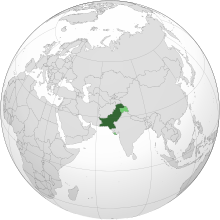In the tentative and jerky global political landscape, only those countries remain successful that make foreign policy choices keeping in view their national interest. Regrettably, that’s not the case for Pakistan at least in the past as plunging into the wars ravaged by other countries.
Now another such confrontation is whipping the regional political landscape and Pakistan needs to act wisely. Premier’s remarks for not joining the anti-Chinese alliance fall in the same context as he doesn’t perceive good the idea of making one’s own loss by sucking up into external rivalries.
In an interview with a Chinese media outlet he, in particular, referred to the Build Back Better World initiative of G7 countries – the plan designed to counter the Chinese Belt and Road Initiative. Also, with the help of B3W USA is compelling the QUAD – a grouping of 4 countries – against Chinese influence.
PM Imran Khan’s concerns about not abandoning its allies are right as regards the changing geopolitical developments. Indeed, Pak-China relations are historical and deep and they can’t be compromised for adjusting to changing global and regional politics. Beijing has lent a helping hand to Pakistan in the hour of difficulty and the former takes this companionship as a prestige.
Apart from China, Pakistan wants friendly ties with the US too and desirous of clearing out the mess of the past. Therefore, the message to Washington must be loud and clear that Pakistan won’t become a party to any conflict that challenges its ties with traditional allies.
Pakistan must also keep in focus her national interests, and maintaining neutrality in other decisions pertaining to foreign policy as it did in the past by not indulging in the 2015 Yemen imbroglio.
Undoubtedly, parliamentary decision saved the country from quagmire then. Thus, all future foreign policy decisions should be taken via judicious and peaceful parliamentary discussions.
📍 English Language Educator | Blogger & Content Strategist | 7+ Years in Educational Blogging
Nosheen Bashir is a dedicated English teacher and experienced blogger with over seven years of expertise in content creation and educational writing. Passionate about language, literature, and effective communication, she combines her teaching experience with blogging skills to create insightful, research-backed content that helps learners and educators alike.
🔹 Expertise & Achievements:
✔ English Language Education: A skilled educator with years of experience in teaching English grammar, literature, and communication skills to students of varying levels.
✔ Educational Blogging: Running a successful blog for 7+ years, delivering well-structured, engaging content on language learning, writing techniques, and academic success.
✔ SEO & Content Strategy: Specializes in creating high-ranking, authoritative articles that follow Google’s EEAT principles, ensuring content that is both informative and search-friendly.
✔ Student-Centric Approach: Committed to making English easier, engaging, and accessible, helping readers and students improve their language proficiency.
🚀 With a passion for teaching and writing, Nosheen Bashir is dedicated to crafting educational content that empowers students, teachers, and language enthusiasts worldwide.









